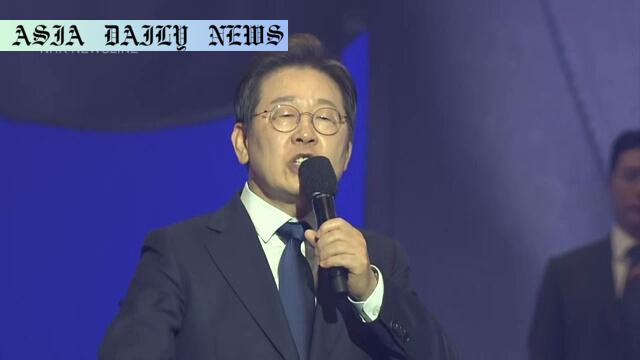Lee Jae-myung faces a further review of the acquittal in his election law violation case, complicating his presidential campaign.
Lee Jae-myung faces a court-ordered review of his acquittal regarding election law violations.
The South Korean top court decision emerges as Lee leads the presidential race polls.
The controversy stems from false claims made during a prior presidential campaign.
The final ruling on the case won’t be likely until after South Korean elections in June 2023.

A Sudden Twist in Lee Jae-myung’s Election Campaign
South Korean politics has taken a dramatic turn as the nation’s top court has called for a reconsideration of the acquittal of prominent presidential candidate Lee Jae-myung. This comes at a crucial juncture, with elections steadily approaching and Lee rising as a leading contender. Lee, a significant political figure endorsed by the main opposition party, has been accused of making false claims during the previous presidential campaign regarding a development project he oversaw as a city mayor. This development has not only brought fresh scrutiny to Lee’s campaign but has also highlighted lingering issues within South Korea’s judicial and political landscape.
The case has been embroiled in legal battles for over three years. Initially, the Seoul Central District Court found him guilty of election law violations, a charge that could have jeopardized his political aspirations. However, in a turn of events, the Seoul High Court overturned the ruling in March, acquitting Lee. Despite this seeming victory, the latest decision by the South Korean Supreme Court demands a fresh evaluation of the high court’s judgment. This move has led to significant political ripples, raising questions about the judicial system’s impact on electoral proceedings and democracy in South Korea.
Implications for Lee’s Presidential Run
With this ongoing legal case, Lee Jae-myung’s candidacy faces uncertainty despite leading in recent opinion polls. Political analysts suggest that the timing of the court’s decision could influence voters and tilt public perceptions. The allegations against him and the court’s decision to revisit his case lend fodder to his critics, who argue that such controversies undermine his integrity as a leader. Additionally, the decision to defer the final ruling until after the elections also raises concerns about transparency and its implications for the democratic process.
For South Korea, this situation has sparked broader debates about the relationship between politics and law. In a democracy, ensuring the balance between upholding legal justice and preventing political bias is delicate. The focus now shifts to the judiciary’s role in navigating contentious cases involving public figures and its potential implications for voters.
Judicial and Political Dynamics
Lee Jae-myung’s case reflects the intricate dynamics between politics and law enforcement in South Korea. Over the years, public perception around judicial independence has been mixed, with some claiming institutions align their actions with political agendas. In this case, while the judiciary’s intention to ensure accountability is commendable, the delays and timing of decisions have raised eyebrows among citizens and political commentators alike. This saga underscores the challenges in achieving a fair and unbiased democratic process.
The review’s timing is particularly critical as political campaigns ramp up ahead of the June 2023 elections. Critics argue that unresolved cases like this hinder focus on policy and governance, instead driving sensationalism in political discourse. Additionally, such legal disputes can deter voters by creating distrust and disillusionment in the political landscape. On the other hand, supporters view the judiciary’s move as a testament to the nation’s commitment to justice, even involving influential figures.
Commentary
Political Vulnerability Amid Legal Controversies
Lee Jae-myung’s case highlights the vulnerabilities political figures face when entangled in legal controversies. For a leading presidential candidate, such accusations can profoundly shape public opinion and derail campaign momentum. Although the court’s intention to ensure justice is laudable, its timing introduces a nuanced challenge. Voters are likely to question if this is politically influenced or a genuine attempt to uphold legal standards.
Impact on the South Korean Electoral Process
The court’s decision could inadvertently project an image of instability within the democratic framework. South Korea has prided itself on its progressive democracy, but high-profile cases like these bring to light the system’s cracks, where legal and political intersections potentially disrupt governance priorities. Clear communication from the judicial system regarding motives and transparency is vital to restoring faith in its institutions.
A Precarious Turning Point
Ultimately, this situation marks a precarious turning point for both Lee and the broader political establishment. Regardless of the outcome, this case has set a precedent for intertwining legal proceedings with political campaigns. For observers, this underlines the urgency to revisit policies ensuring greater separation between judiciary processes and political milestones, ensuring the democratic focus remains steadfast on public welfare and effective leadership rather than controversy-laden distractions.


